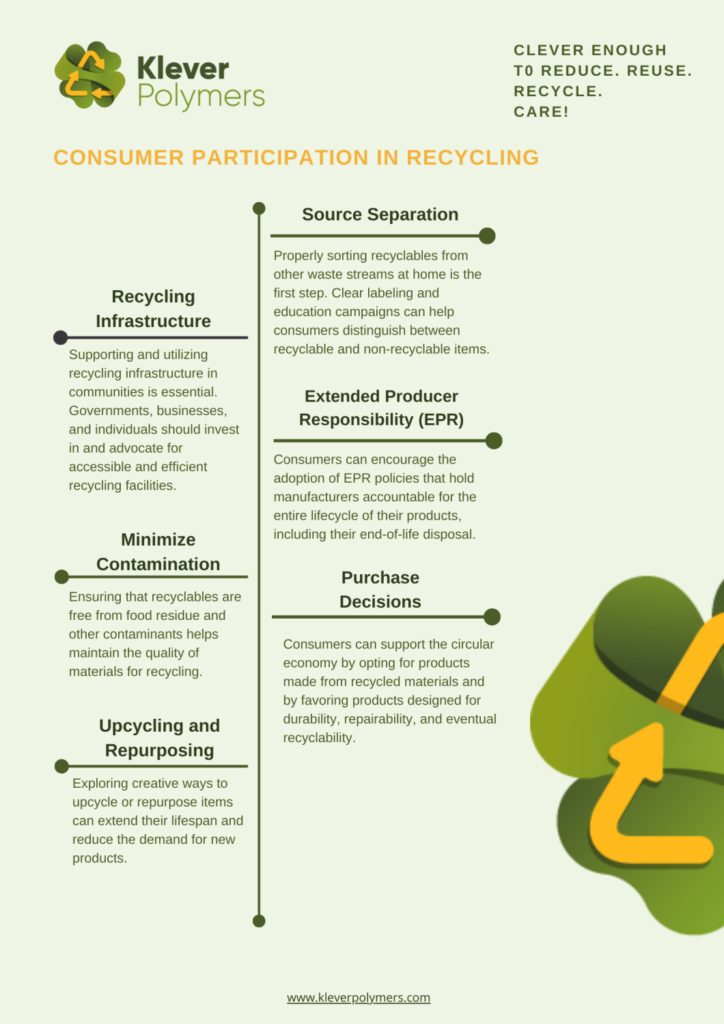Consumer Engagement in Recycling with Circular Economy

In today’s increasingly environmentally conscious world, the concept of a circular economy has gained significant momentum. The traditional linear economic approach of “take, make, and dispose” is no longer viable, given the finite nature of resources and the growing waste crisis. The circular economy offers a promising alternative that not only reduces environmental impact but also encourages active consumer participation in the recycling process which is a model focused on regenerating resources and minimizing waste. Unlike the linear model, which involves producing goods, using them, and then disposing of them, the circular economy promotes a continuous cycle of reuse, repair, remanufacturing, and recycling. This approach aims to extract the maximum value from products, materials, and resources while minimizing harm to the environment.
Recycling plays a crucial role within the circular economy by diverting waste from landfills and reintegrating it into the production process. Through recycling, materials such as paper, glass, plastic, and metals can be transformed into new products, reducing the need for new resources. This not only conserves natural resources but also decreases energy consumption and greenhouse gas emissions associated with resource extraction and production.
Consumer engagement is essential for the success of the circular economy, particularly in relation to recycling. By involving consumers in responsible waste disposal and recycling practices, we can complete the cycle and close the loop.

While the circular economy shows great promise, it is not without its challenges. These obstacles include issues around the collection and sorting of recyclable materials, lack of consumer awareness, and the need for a strong market for recycled materials. To overcome these challenges, collaboration between governments, industries, and consumers is crucial. Governments can introduce supportive policies and regulations, while businesses can adopt sustainable practices and innovate in product and packaging design.
In an era where sustainability is of utmost importance, the circular economy offers a viable solution that prioritizes environmental well-being while maintaining economic prosperity. At the heart of this model lies consumer engagement, which is pivotal in transforming the way we produce, consume, and dispose of goods. By embracing the principles of the circular economy and actively participating in recycling efforts, consumers can stimulate positive change and contribute to a more resilient and sustainable future.
